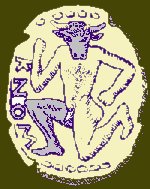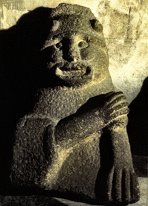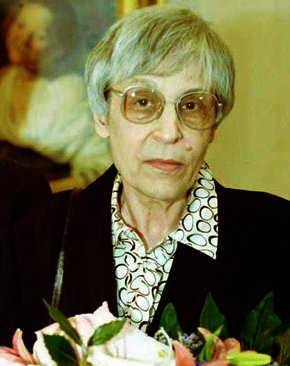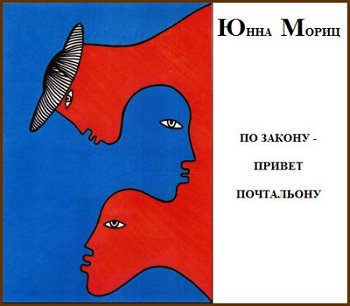|
A LIGHT IN RUINS poems by Yunna Morits
|
A LIGHT IN RUINS
A light in ruins glimmers
like a star
Someone's in there, a glow between his lips.
The war is over. We've just had a bath!
And life is beautiful. I must travel far.
And for miles around us you can smell
the pungent odour of carbolic soap:
our cleanliness surrounds us like a cloud.
I have clean underclothes. My hair is clean as well.
I have a little smock on, nice and neat.
Alongside my clean mother I am trotting,
dozing as I go, dreaming of a tram,
its loud clang silvering my sleep,
silvering my little bundle,
and the world is silvery, and there's no war,
and we are walking from the public baths.
I'm eight years old, and have to go so far.
And we won't take the lousy tram, it seems,
because we've been deloused.
The world is beautiful, and we're alive,
and will now live for a hundred years!
The world is beautiful. I have to go so far,
but against mere poverty I feel defended -
And O my God! how fearful and how splendid:
a light in ruins glimmers like a star.
translated by Anthony Weir and Artyom Kotyenko
click
to compare with a really bad translation
![]()
IN THOSE TIMES
He was seven years old, the same age as me.
I had TB, but my poor friend did not.
In the sick children's canteen I was given lunch
because I had TB. My poor friend was not.
I hid in my hanky one of the two rissoles I got.
I had tuberculosis, but my poor friend did not.
He ate
my little offering, my big sacrifice in just one bite,
and carefully washed my hanky before returning it.
One day I asked him, when we were alone:
- Wouldn't it be better to make a rissole last
By eating it in nibbles rather than a gulp ?
And he replied : "Absolutely not! If you eat it slowly,
The taste of beef remains - and you feel hungrier than ever."
The war impaled his healthy
body on my sick one.
I had tuberculosis, but my poor friend did not.
We both managed to survive
on one meal-ticket.
And with one meal-ticket two bodies enter Heaven.
translated by Anthony Weir and Artyom Kotyenko
![]()
SOMEHOW, WHILE I WAS WATCHING
Somehow, while I was watching,
Nature always slunk away.
I'd look at the sea,
but it would be retreating out of sight.
The wind that stirred the grass
blew past me, bewilderingly
as I gazed on distant hills.
They cold-shouldered me
did not enfold me,
and even rivers turned away,
and I so yearned to be in love with,
and to be loved by, Nature.
All the time, of course,
it was within me,
and I was part of it
while my life was sheer confusion.
translated by Anthony Weir
![]()
THE BODY IN QUESTION
I spent three hours in
hospital.
That dampened down the political debate
which raged inside me. Instead
I'm learning about the body,
and just how much, or how little
magical thinking can accomplish.
I'm getting strong enough in bed
to dare to interpret what the doctors mutter
off the cuff.
Yes, it must be said:
these capitalist doctors know their stuff.
translated by Anthony Weir
![]()
ALREADY
Once again, ordinary folk
can cross our borders,
conspiracies are not once-and-for-all suppressed,
and your next-door neighbour has probably
not been encouraged to work for
the Secret Service.
Already the great blundering certainties
which made our protests so significant
and unforgettable
have gone. Already there are signs
that Nostalgia is starting to infect our minds.
translated by Anthony Weir
![]()
YOU ARE MY GIRL
You are my girl.
You are my darling,
You are my sweet.
She lies like a little
tumulus
in a chlorine-fragrant ward.
The thin skin of her scalp says
I'm dying here,
and who knows ?
Cook, wash! her
eyes
say. Clean your shoes,
you haven't shaved... your tie…
Cotton wadding burns on
a stick:
they are cupping
someone.
He went for a smoke.
The doctor had worked in Sri Lanka,
made a mint: "Don't upset yourself, man,
she won't suffer, -
I'll arrange so she's asleep.
Do you want some halibut and cabbage ?
There's some left…"
He smells of halibut and
cabbage,
Dear God, he's polishing off
hospital leftovers!
Don't humiliate him. Dear Lord,
he is my own boy,
find him a nice young widow
in a clean dress.
So they once lived and
died,
our "sovki", Soviet Folk.
In summer their hot water was cut off,
though there was still sugar. And for winter
they cooked cherries, raspberries;
they dried mint and currant leaves
and rose-hips…
History stinks,
but life is aromatic.
translated by Anthony Weir
![]()
YOU GET HOME,
THERE'S A CASINO OR A PIZZA HUT
You get home, there's
a casino or a Pizza Hut.
Each block has its protecting President and Vice-.
That woman-soldier in her armoured vehicle is snug
in privatised padding.
The bodyguard-surrounded M.P. drinks Dutch beer from a can,
wrapping his bathrobe round him in Mayoral and
Prefectly fashion,
Just now, the firm's facsimile informs him,
Burma is trading four trainloads of toilet paper
for a submarine. Chaos in the National Bank:
the money's run out. The puppy has died,
the Treasurer is not feeling too good.
"Damned Democratic Shitheads, kiss your Mothers' arses!"
The queue becomes a mob, not knowing how to walk
to a burial in a civilised manner.
Clio, speaking personally, would not feel demeaned by aid
if it ever reached me through the widespread thieving.
All the good people, good-lookers, all the brains are leaving;
only the untalented, corrupt - and fools like me - remain.
translated by Anthony Weir
![]()
THE PURGATORY OF THE WORD
On the edge between the
breath out and breath in,
a wave crests where life is freed from come and go;
body and appearances are gone,
and our essential natures freely flow.
There are no things there
to hold our vacuums,
and being's not what we have come to think,
not personal, not particular, just rhythms
like light-waves - like star-blink.
On the ledge between the
breath out and breath in,
life's not seen, but - like music - felt and heard,
and there words turn into poetry.
There is the Purgatory of the word.
translated by Anthony Weir, who adds
that Purgatory is a concept alien to the Orthodox churches
but not to Ukrainian Catholics.
PORTRAIT OF A SOUND
When the dim outlines
are suggested,
I draw them with a pencil, listening intently
To that line's sinuous meanderings …
Until the light of recognition dawns,
Whereupon the portrait of a living sound,
With a tender smile, is snatched from obscurity.
Then, opening its blouse
at the throat,
Like a glass-blower I seize the slender thing,
And breathe a living sound into this membrane.
And the whole of my life goes out into it,
Transparent, like a pure
stream of air …
And the sound's surpassingly lovely face
Is so iridescent, Lord, and O so clear!
translated by Daniel Weissbort
![]()
CORAZÓN
Dark forest of travels,
lightbeam of former lives,
forgotten dream,
from under the splash of root,
blood-spring…
The word I am
hurt by: corazón. [Spanish for 'heart']
Quick from the bark
twilight spurts, sap,
a fire-fly spark,
sphere-starts,
sand-stars,
milk-drop stars.
Wind moves
the courtyards here:
olive trees, agaves, pines…
Word that hurts so much
on the ribbons of wind,
windings of lines.
translated by Daniel Weissbort
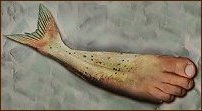
AFTER 'A POEM OF
DESPAIR'
BY "IGOR SEVERYANIN" WHICH I READ SHORTLY
AFTER READING YUNNA MORITS
Anthony Weir
I know nothing, trust
in nothing,
don't see life's reputed "brighter side".
I'm wary even of my close companions.
Friendship is vacuous. I'm shit washed by a filthy tide.
A school's blown up. Refugees
are raped.
Everywhere corruption, lies and greed.
Seeing's revulsion, hearing is white noise.
Everything we do is bad.
Philosophy's corrupt and
love is self-deceit -
just smoke and mirrors. Hope's another cause of misery.
I have no joy in living, am battered by futility.
Shame and horror weave my winding-sheet.
for Vladimir Putin
According to
Wikipedia,
some of Morits' recent poetry contains anti-Ukrainian
and anti-Western sentiments
and invective against the "Western anti-Russian campaign".
|
Igor Vasilyevich Lotaryov (1887-1941) was a St Petersburg poet who presided over the circle of 'Ego-Futurists', and admired - even looked like - Oscar Wilde. The Verlaine of fin-de-siècle Russia, 'Severyanin' was one of the first poets to leave Russia after the October Revolution. He settled in Estonia in 1918, then tried to return to Russia shorttly afterwards, but could not because of the civil war, marriage to a local girl, unreceptive literary climate, etc. Severyanin died from a heart attack in Russian-occupied Tallinn, several decades after his reputation had been dissolved by the Soviet optimism which ended in capitalist infection. |

Ukraine in Ruins, 2022

